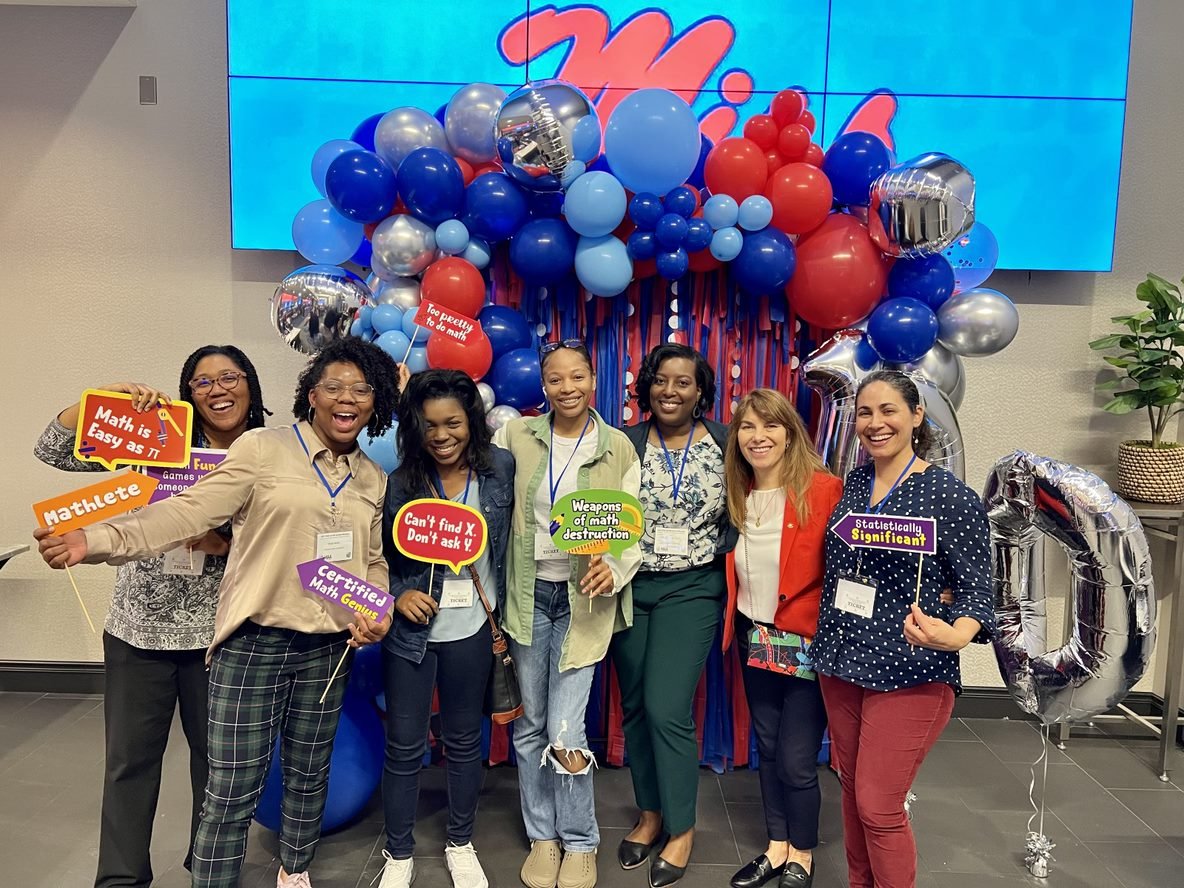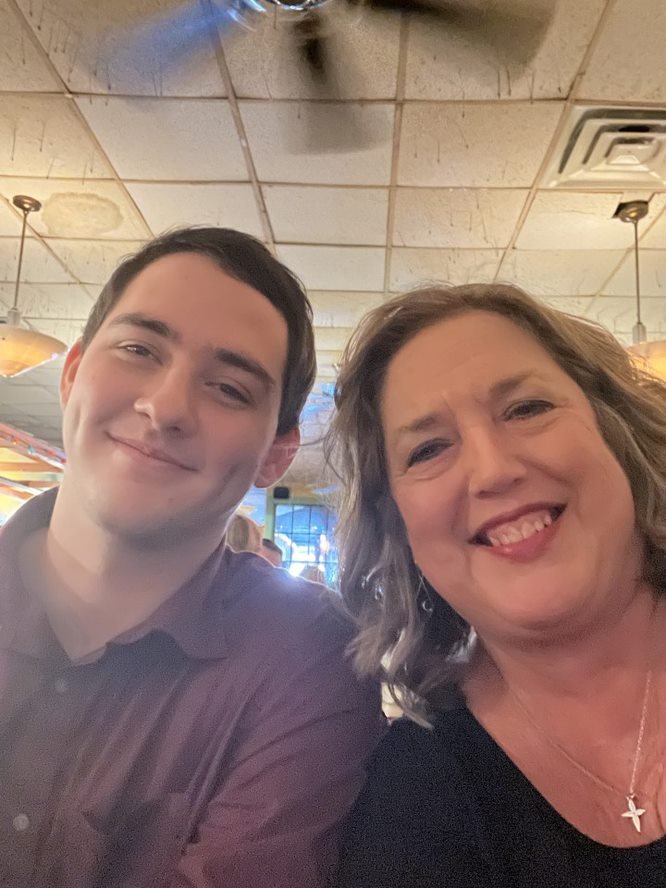student activities



The LA-MS Section of the MAA will hold its annual Student Paper Competition at the Spring section meeting. Papers are solicited in two categories; graduate and undergraduate. The graduate category is limited to master's students. Ph.D. students are encouraged to submit for the contributed paper sessions. Presentations at the meeting will be limited to 12 minutes. A written paper of 6 pages or less must be received and include the author's name, institutional affiliation, faculty advisor and an e-mail address. Late entries will not be considered.
POSTER SESSION
Criteria
Eligibility: Research must have been conducted while you were an undergraduate. This includes first-year graduate students who want to present their undergraduate research projects. Each student may only participate in one poster.
Time Commitment: Please be prepared to stay for the full session length.
Poster Content: Appropriate poster topics may include: expository topics, a new proof of a known result, a new mathematical model, an innovative solution to a Putnam problem, a method of solution for an applied problem.
Poster Evaluation: Each student receives helpful feedback and research advice from meeting attendees. All attendees will be provided a rubric to submit anonymous feedback to the students. We encourage students to use the feedback to return for the following spring Section Meeting’s Student Paper Competition.
Poster Design and Display: Please bring your 48" by 36" poster with a tri-fold display. We will provide several binder clips so that your poster can be quickly pinned to the tri-fold. Tri-folds will not be provided.
Note: Do not crowd the poster with too much content or too small of font size (recommended is the Arial font with 25 point size). Choose colors that are easy on the eyes and don't use too many colors as it will make the poster look too busy.
STUDENTS' TEAM COMPETITION
Student Competition Rules
The student team competition will be held at the Spring Section Meeting.
Contest Rules
1. Each institution may send at most two teams, each team consisting of at most four students. The four students within one team may work together on problems. Students may not get help from people on other teams, even if from the same school. 2. Participants must be undergraduate students and currently enrolled at the institution they represent. This means that the student has not yet earned a bachelor's degree--exceptions for students who are returning back to school to pursue a second bachelor's degree when the first degree was not in a mathematical area may be considered. A student from abroad who has completed training equivalent to an American bachelor's degree and who is taking solely graduate-level courses in a graduate program will be ineligible. 3. Each team must have a faculty sponsor. 4. Calculators comparable to the TI-84 without a symbolic manipulator will be allowed. Calculators with a symbolic manipulation capability, such as the TI-92 or TI-89+, are not allowed. 5. The contest will last 2 hours. 6. The Competition Committee is solely responsible for interpreting the rules and for ruling on any unforeseen situation.
Contest Problems
The contest will consist of 2 groups of problems. Each team may choose any 5 problems from Group II. Each problem will be worth 10 points. The problems are from the following areas: The contest will consist of 2 groups of problems. Each team may choose any 5 problems from Group II. Each problem will be worth 10 points.
Group I
- Ten mandatory problems.
- Calculus (5 problems)
- Abstract Algebra (1 problem)
- Differential Equations (1 problem)
- Discrete Mathematics (1 problem)
- Linear Algebra (1 problem)
- Multivariable Calculus (1 problem)
Group II
- Choose any 5 problems
- Abstract Algebra (1 problem)
- Advanced Calculus (1 problem)
- Complex Analysis (1 problem)
- Differential Equations (1 problem)
- Geometry (1 problem)
- Linear Algebra (1 problem)
- Number Theory (1 problem)
- Point-Set Topology (1 problem)
- Probability/Statistics (1 problem)
- Set Theory/Logic (1 problem)
Student Paper Competition Winners
2024
First Place:David Torrent "Using the Hungarian Method for Endowment Distribution" Faculty Sponsor: Daniel Watson, Mississippi College Second Place: Shelby Dean"Branching Out: A Further Look at Christmas Trees" Faculty Sponsor: Daniel Watson, Mississippi College Third Place: Abel Gurung and Qingguang Guan "Modeling the Open Probability of Ion Channels on Cell/ Organelle Membranes using Deep Neural Networks" Faculty Sponsor: University of Southern Mississippi
2023
First Place: Andrew Lott "Computations and Observations on Congruence Covering Systems" Faculty Sponsor: Alex Rice, Millsaps Email: riceaj@millsaps.edu Second Place: Emerson Statom "Three Colorful Methods for Finding the Chromatic Polynomial" Faculty Sponsor: Galen Turner, LA Tech Email: gturner@latech.edu Third Place: Kelsten Antoine "Candy Crush Combinatorics" Faculty Sponsor: Nicholas Richardson, Northwestern State Email: richardsonn@nsula.edu
INTEGRATION BEE
Each institution may register up to 6 undergraduate students, and registration will be limited to 50. There is a deadline for registering. More information and the rules are available on the section website.
Integration Bee Winners:
2024
First Place: Jonathan Kiesel, Mississipi State University, Advisor: Jaclyn Smith
Second Place: Pragyesh Poudel, Mississippi State University, Advisor: Jaclyn Smith
Third Place: Dinesh Chhantyal, University of Louisiana Monroe, Advisor: Blake Farman
2023
First Place: Bobby Jarrell, Mississippi State University
Second Place: Ngoc Bui, McNeese State University
Third Place: Andrew Lott, Millsaps College
2022
First Place: Ian Golsby, Louisiana Tech (Advisor: David Meng)
Second Place: Jacob Matulevich, University of Louisiana - Lafayette (Advisor: James Kimball)
Third Place: Scott Whitman, University of Louisiana-Lafayette (Advisor: James Kimball)
STUDENT TEAM COMPETITION WINNERS
2024
1st: University of Louisiana at Lafayette ; Joshua Hebert, Aidan Babineaux, Allison Zanyk, and Scott Whitman
2nd: Mississippi College; Luke Boarman, Adelaide Zink, Trevor Thomas, and David Torrent
3rd: Millsaps College; Chris Dean, Raj Agrawal, Haley Havard, and Ginny Ray Clevenger
2023
1st: Mississippi School of Math and Science; Jon Kiesel, J.D. Hagood, Vivek Nagarajan, Landon Tu
2nd/3rd Place Tied: Mississippi State University; (Team A); Deven Gill, Bobby Jarrell, Ben Wilson
Millsaps College; Andrew Lott, Kratik Gupta, Chris Dean, and Raj Agrawal
2022
1st: Millsaps College; Andrew Lott, Chris Dean, Raj Agrawal, Faculty Sponsor: Alex Rice
2nd: Mississippi School for Mathematics and Science; Amy Zhang, Raeed Kabir, John David Hagood, Jonathan Kiesel, Faculty Sponsor: Andrew Pham3rd: MSU; Deven Gill, Jacob White, and Megan Singh, Faculty Sponsor: Jaclyn Smith
2021
1st: Mississippi School for Mathematics and Science; Jackson Flowers, Amy Zhang, Michael Lu, and Anh Nguyen, Faculty Sponsor: Dr. Philip Benge
2nd: University of Louisiana at Lafayette; Maddie Angerdina, Reigner Kane, and Andrew Bayard, Faculty Sponsor: Dr. Ross Chiquet
3rd: University of Louisiana at Lafayette; Edward Babin, Isaac Kulp, and Phat Do, Faculty Sponsor: Dr. Ross Chiquet
2020
1st: University of Louisiana at Lafayette; Maddie Angerdina, Andrew Bayard, Reigner Kane, and Grace Sternaman, Faculty Sponsor: Dr. Ross Chiquet
2nd: Mississippi School for Mathematics and Science; Jackson Flowers, Dennis Lee, Vayd Ramkumar, and Rachel Zheng, Faculty Sponsor: Dr. Philip Benge
3rd: University of Louisiana at Lafayette; Edward Babin, Jacob Echols, Nicholas Henderson, and Lance Myers, Faculty Sponsor: Dr. Ross Chiquet
